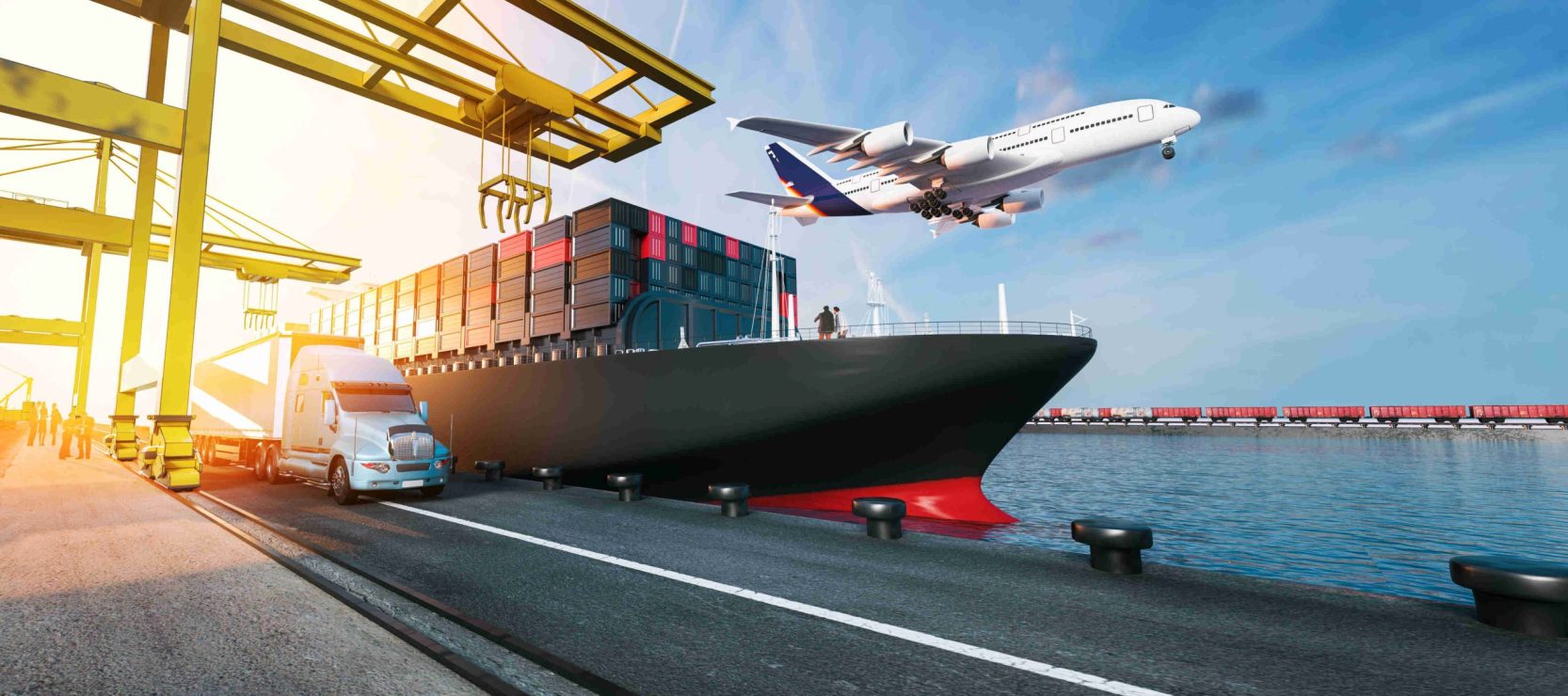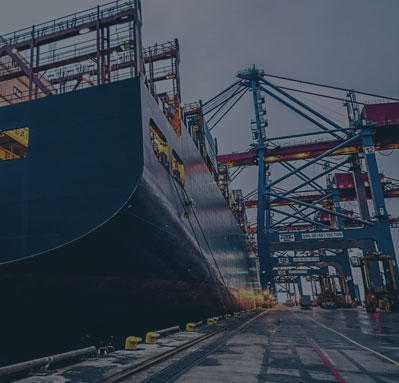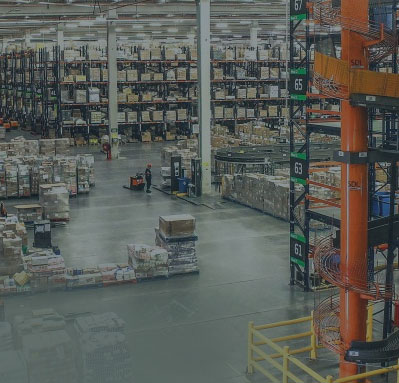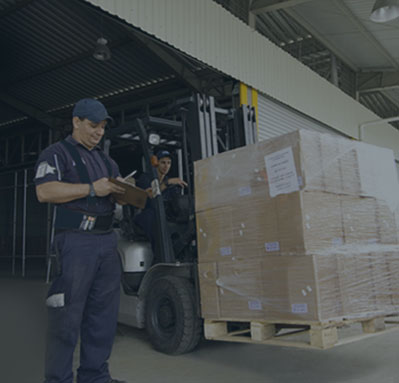Freight charges are a complex and crucial aspect of the shipping industry, and even the most experienced freight forwarders can face challenges in this area. When multiple parties are involved in coordinating and delivering cargo across vast distances, misunderstandings are inevitable. However, by working with a professional freight forwarder and acquiring a good understanding of freight charges, you can avoid shipping complications and ensure successful deliveries. In this article, we will provide you with all the necessary information on freight charges, including their definition, calculation methods, and various types. By gaining a comprehensive understanding of this information, you will be fully equipped to efficiently handle your freight shipments, grasp the intricacies of your freight charges, and prevent any potential misinterpretations.
What are Freight Charges?
Freight charges are fees and expenses associated with shipping goods from one location to another. These charges include the cost of transportation and can vary based on shipment size, nature of cargo, weight, distance, mode of transportation, and any additional services required. Freight charges are typically paid by the shipper, receiver, or a third-party logistics provider (3PL). The purpose of these charges is to cover the cost of services such as loading, unloading, transportation, and handling of the goods being shipped, as well as any other required services such as insurance, customs clearance, and packaging. Freight charges are crucial in ensuring the efficient and effective transportation of goods, and they are essential for the smooth operation of the shipping industry.
How are Freight Charges Calculated?
The cost of freight charges is calculated based on several factors. The most common factors that affect the cost of freight charges include the following:
-
- Customer Demand: When there is high demand for shipping space, there will be a surge in the volume of goods to be transported, and users will compete for the limited capacity. Consequently, shipping companies can charge higher prices for the limited space available. However, when demand for freight services is low, shipping companies will lower their rates to compete with the smaller pool of consumers looking to transport goods.
-
- Distance: The distance the goods need to be transported is a significant factor in calculating the cost of freight charges. The longer the distance, the higher the cost.
-
- Evolving Rules and Regulations: The shipping industry can be subject to governmental regulations in certain countries. To offset any potential losses incurred by such restrictions, shipping companies may opt to raise their freight charges.
-
- Fuel Prices: The price of fuel plays a significant role in determining the cost of road and sea shipping, and the final price charged to the customer must include the prevailing fuel price at the time of shipment. When fuel prices are high, transportation costs will be higher. When fuel prices are low, transportation costs will be lower.
-
- Incidents: Emerging incidents such as terrorism, piracy, and rogue governments can have significant impacts on the shipping industry, resulting in increased freight charges as shipping companies try to cover their losses. Shippers may have to opt for longer routes that provide better safety measures, which in turn raises costs. They may require additional security measures to protect cargo, such as hiring security personnel. Additionally, to cover the risks, higher insurance premiums are required.
-
- Mode of Transportation: The mode of transportation used to transport the goods also affects the cost of freight charges. For example, shipping by air is more expensive than shipping by sea or land.
-
- Nature of Cargo: The nature of cargo for freight fees refers to the characteristics and attributes of the goods being transported that impact the cost of shipping. For example, hazardous materials will have different freight fees compared to shipping a container of food or furniture.
-
- Type of Freight: The type of freight being transported can also affect the cost of freight charges. For example, hazardous materials require special handling and are more expensive to transport than non-hazardous materials.
-
- Weight: The weight of the goods being transported also plays a role in determining the cost of freight charges. The heavier the goods, the more expensive it is to transport them.
- Additional Services: Additional services, such as insurance, customs clearance, and packaging, can also affect the cost of freight charges.
Air freight charges
Air freight costs can vary depending on several factors, including the carrier, route, and other variables. Additionally, air freight charges will be based on whether you are importing or exporting your cargo. To obtain accurate and up-to-date pricing information, it is recommended to consult with a specific carrier or freight forwarder.

Common air freight fees applicable for both import and exports
-
- Air Freight Charge: Based on the weight of the shipment in kilograms (kg).
-
- Airline Handling Charge: Covers the handling of cargo by the airline at the destination airport, charged per kg with a minimum charge of AED 36.
-
- Airway Bill Fee: Charged per Master Airway Bill (MAWB), which is a legal contract between the shipper and the airline that contains details about the shipment.
-
- Breakbulk Charge: Charged if the shipment moves as a consolidation, meaning it is combined with other shipments, per MAWB.
-
- Calogi Service Fee: Charged for the use of Calogi, an online platform for air cargo booking and tracking, per shipment.
-
- Customs Clearance Fee: Charged for the clearance of cargo through customs, per document.
-
- Customs Duty: Charged for the import/export of goods that are subject to customs duties, per shipment.
-
- Declaration Fee: Also known as customs declaration fees or customs documentation fees, declaration fees are charges levied by customs authorities or freight forwarders for the preparation and processing of required customs documents and declarations. Both import and export declaration fees are charged accordingly per shipment.
-
- Destination Manpower Charges: Charged for the handling and delivery of the cargo at the final destination, per person based on the weight of the shipment.
-
- Destination Transportation Charge: Charged for the transportation of the cargo from the destination airport to the final destination, if applicable, per shipment.
-
- Electronic Data Processing Fee: Charged for the processing of electronic data related to the shipment.
-
- Fuel Surcharge: Covers the fluctuating cost of aviation fuel, charged per kg.
-
- Import Delivery Order Fee: Charged for the issuance of a Delivery Order (DO) for the import shipment, which is required for the release of cargo from the destination airport, per MAWB and HAWB.
-
- Labeling Fee: Charged for labeling the cargo with appropriate shipping information.
-
- Manpower Charge: Charged for the handling and loading/unloading of the cargo, per person based on the weight of the shipment.
-
- Security Surcharge: Covers the costs associated with enhanced security measures for air cargo shipments, charged per kg.
-
- Transportation Charge: Charged for the transportation of the cargo to/from the airport, if applicable, per shipment.
-
- Value Added tax (VAT): Charged if applicable for Value Added Tax (VAT), which is a tax on the value added to goods or services at each stage of production or distribution, per shipment. Additionally, a VAT facilitation charge may be charged to cover services such as VAT registration, preparation and submission of VAT returns, and the handling of any VAT-related disputes or inquiries.
- VAT Inspection Charge: Charged by customs or airport authorities in the exporting country to inspect goods imported by air and ensure the appropriate VAT has been paid. The charge covers the cost of the inspection process and is separate from other fees associated with air freight.
Sea freight costs
Sea freight costs can vary depending on the shipping line, route, and other factors. Additionally, sea freight charges will be based on whether you are importing or exporting your cargo. It’s always best to check with a specific shipping line or freight forwarder for up-to-date and accurate pricing information.
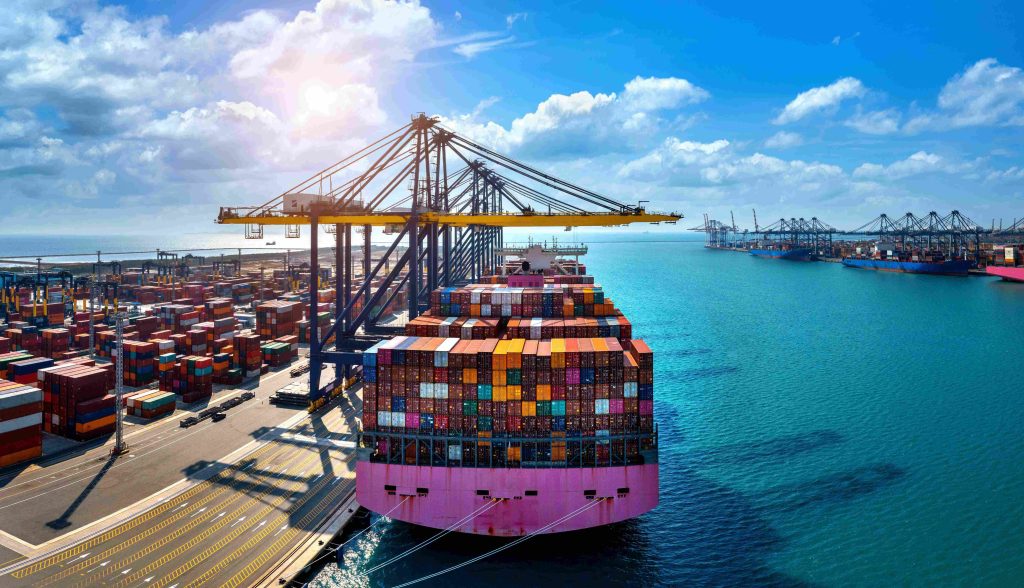
Common sea freight costs applicable for both import and exports
-
- Bill of Lading Fee: Charged for the issuance of a Bill of Lading (B/L), which is a legal document that serves as proof of ownership of the cargo and contains details about the shipment.
-
- Bill of Lading (B/L): A legal document issued by the carrier or its agent acknowledging the receipt of goods and specifying the terms of the contract of carriage. It serves as evidence of title to the goods and must be presented to claim the goods at the port of destination.
-
- Bunker Adjustment Factor (BAF): Added to the freight cost to account for fluctuations in the cost of fuel used to power the shipping vessel. It covers the additional costs associated with fuel consumption.
-
- Carrier Security Fee (CSF): Applied by shipping lines or carriers to cover the costs of implementing and maintaining security measures to protect cargo during transit. This charge is usually applied as a flat fee per container or per shipment.
-
- Consular Fee: Charged for the certification of certain documents, such as commercial invoices, by a consular office of the destination country.
-
- Container Demurrage Charges: Charged when a container is not returned to the shipping line within the agreed time frame, resulting in additional use of the container and potential disruption to the shipping schedule.
-
- Container Imbalance Surcharge (CIS): Charged when there is a shortage of containers in a particular location, and containers need to be repositioned from another location to meet demand. It covers the additional costs associated with container repositioning.
-
- Container Loading and Unloading Fee: Charge imposed for the act of loading or unloading of cargo onto a transportation vessel, such as a ship, airplane, truck, or train. This fee covers the cost associated with the labor, equipment, and resources required to load the goods safely and efficiently onto the designated transport vehicle.
-
- Container Protection Charge (CPC): A sea freight charge that is applied by shipping lines or carriers to cover the costs of implementing and maintaining measures to protect containers and their contents from theft or damage during transit. This charge is usually applied as a flat fee per container or per shipment.
-
- Container Seal Fee: Charged for the application of a seal to the shipping container to ensure the security of the cargo during transport.
-
- Container Seal Fee: Charged for the application of a seal to the shipping container to ensure the security of the cargo during transport.
-
- Currency Adjustment Factor (CAF): Added to the freight cost to account for fluctuations in exchange rates between the currency of the shipping line and the currency of the origin or destination country.
-
- Customs Clearance Fee: Charged for the clearance of cargo through customs (when applicable).
-
- Customs Examination Fee: Charged for the examination of the cargo by customs authorities to ensure compliance with regulations and to detect any illegal or prohibited items.
-
- Declaration Fee: Declaration fees, sometimes referred to as customs declaration or documentation fees, are charges imposed by customs authorities or freight forwarders for the creation and handling of necessary customs paperwork and declarations. These fees apply to both import and export shipments and are billed on a per-shipment basis.
-
- Destination Handling Charges (DHC): Charged by the destination port or terminal to cover the costs associated with handling and delivering the cargo to the final destination.
-
- Dangerous Goods Surcharge (DGS): Applied to goods classified as hazardous materials, such as explosives, chemicals, or flammable substances, to cover additional costs of handling and transporting such goods safely.
-
- Document Processing Charge (DPC): A fee imposed by the port authority for every customs declaration processed. This charge is essential to ensure that the declaration is officially entered into the port system. Without the payment of this fee, the declaration cannot proceed through the port’s processing system.
-
- Electronic Documents Attestation Service (EDAS): A charge billed in the UAE attesting import invoices with a value above AED 10,000.
-
- Exchange Rate Fluctuations: Charged to compensate for fluctuations in exchange rates if payment is made in a foreign currency.
-
- Extra Risk Coverage Surcharge (ERS): A sea freight charge that is applied by shipping lines or carriers to cover additional insurance costs associated with transporting high-value cargo or cargo that is deemed to be at high risk of loss or damage. This charge is usually applied as a percentage of the value of the cargo being shipped.
-
- Import Duty/Tax: Charged by the destination country’s government on goods imported into the country.
-
- Import Processing Fee: Charged for the processing of import documentation and customs clearance procedures. Also referred to as an import clearance or custom brokerage fee.
-
- International Ship and Port Facility Security (ISPS): A charge applied to cover the costs associated with compliance with security measures mandated by the International Maritime Organization (IMO) to prevent terrorist attacks or other security threats against ships and port facilities.
-
- Less than Container Load (LCL): Charges associated with shipping goods via sea freight using the LCL consolidation method. LCL is a shipping option used when the quantity of goods being transported does not fill an entire shipping container. Instead, multiple shipments from different shippers are consolidated into a single container to optimize space and reduce costs.
-
- Low Sulphur Freight Charges: Applied by shipping lines or carriers to cover the additional costs associated with complying with regulations that require ships to use low sulfur fuel while operating in certain areas, such as within emission control areas (ECAs) designated by the International Maritime Organization (IMO).
-
- Ocean Freight Charges: Refers to the cost associated with transporting goods via ocean vessels from one port to another. It is the fee charged by shipping lines or carriers for the transportation of cargo across international waters.
-
- Overweight Surcharge (OWS): Applied to cargo that exceeds the maximum weight limit allowed for a particular shipment, covering the additional costs of handling and transporting overweight cargo.
-
- Peak Season Surcharge (PSS): Added to the freight cost during peak shipping seasons when demand for sea freight is high. It covers the additional costs associated with handling the increased volume of shipments.
-
- Port Congestion Surcharge: Charged to compensate for delays caused by port congestion.
-
- Port Storage: Charged for the storage of cargo containers or goods at a port facility for an extended period. When cargo arrives at a port, it is typically expected to be promptly unloaded, cleared through customs, and moved out of the port to its intended destination. However, if the cargo remains in the port facility beyond a specified free storage period, a port storage charge may be applied.
-
- Terminal Handling Charges: Charged for the handling of the cargo at the terminal, including loading and unloading from the vessel.
-
- Truck Loading and Unloading Charge (TLUC): A fee associated with the process of transferring a requested container from the container stack onto the chassis of a truck and subsequently offloading the container back onto the stack once it has been returned.
-
- Value Added Tax (VAT): A tax charged on the value added to goods or services at each stage of production or distribution in the origin country.
-
- VAT Facilitation Charge: A fee imposed on companies that do not have a Tax Registration Number (TRN) with the Federal Tax Authority (FTA) during the import of goods. The charge is levied to facilitate the payment of VAT and ensure compliance with regulations.
-
- VAT Inspection Charge: Charged by customs or airport authorities in the exporting country to inspect goods imported by air and ensure the appropriate VAT has been paid. The charge covers the cost of the inspection process and is separate from other fees associated with sea freight.
- War Risk Surcharge (WRS): Also known as the Gulf Emergency Risk surcharge, the WRS is charged to cover the additional risks associated with shipping to or through areas of potential conflict.
Partnering with a Reputable Freight Forwarder
Understanding freight charges is essential for businesses that regularly ship goods. It is crucial to be aware of the various factors that affect the cost of freight charges, including distance, weight, mode of transportation, type of freight, and additional services. By understanding the different types of freight charges, businesses can choose the best option that suits their needs and budget. Working with a professional freight forwarder can also help avoid misunderstandings and ensure that shipments are delivered successfully.
Cargoline delivers on-time and cost-effective shipments by providing personalized solutions tailored to meet your unique business needs. With over 20 years of experience in importing regulated items, we make the process seamless, from drafting the bill of lading to ensuring compliance through import documentation submission at ports worldwide. Our expertise in local customs regulations and regional environment allows us to provide dependable and cost-effective logistics solutions to our clients. We collaborate with businesses to optimize their transportation, storage, and distribution solutions for maximum results.
Contact us today to learn more about how we can streamline your shipping process and reduce costs.
